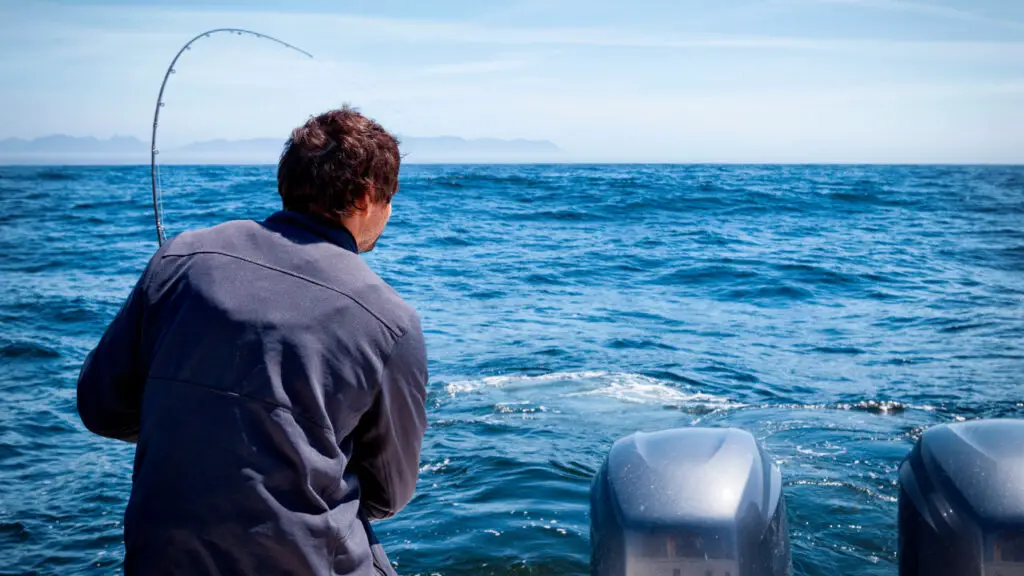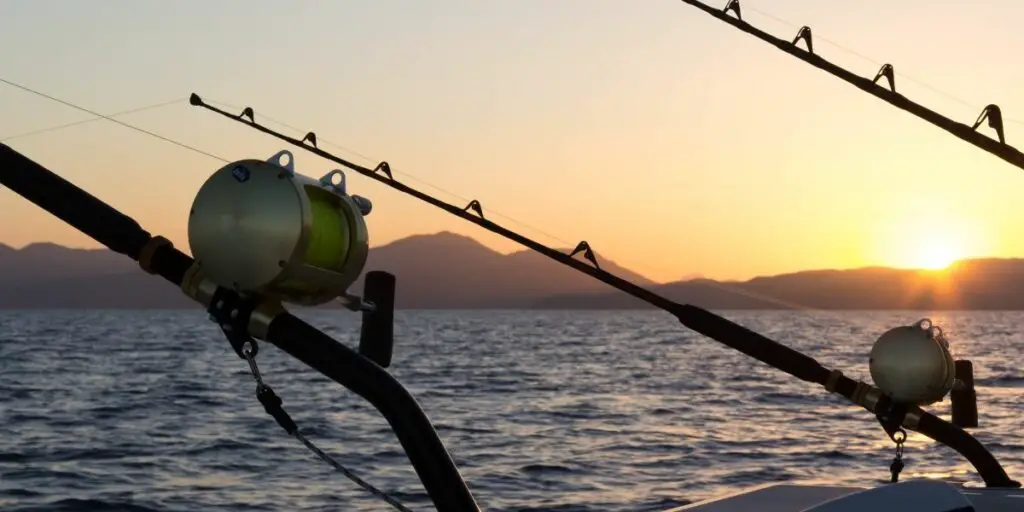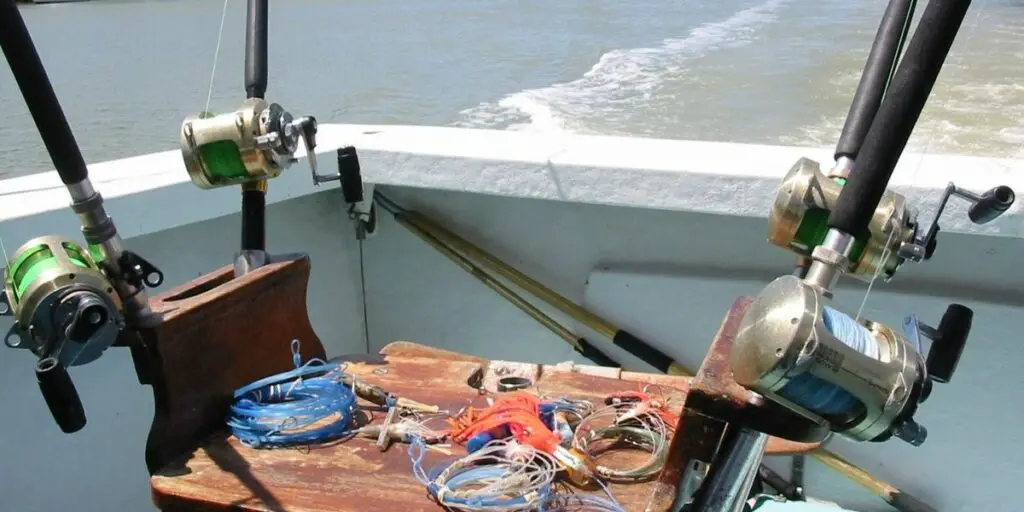
If you go fishing at the wrong time, your catch will not be as good as you hoped or the overall experience.
The best time to go deep-sea fishing is during the hot months like Sep-Aug. Although you can catch fish throughout the year, the warmer seasons that give fishermen the biggest hauls are usually spring and summer.
Hotter temperatures make fish more active, which in turn makes them easier to catch.
Table of Contents
When To Go Deep Sea Fishing
During the transition from winter to spring, the water becomes lukewarm – its neither too cold nor too hot.
Species like bluefin, lunker, and tuna find these conditions pleasant, making them easier to catch.
If you are an ardent fan of seafood, you can’t afford to miss out on deep sea fishing in April and May. This is the period between spring and summer.
Many fishermen can attest that this is the peak season for big game fishing.
Some of the fishes you can capture during these months include dorado, striped marlin, sierra, mahi, Spanish mackerel, yellowtail, tuna, etc.
Your boat might get a bit uncomfortable when summer arrives, but this isn’t reason enough to stop you from going on a deep-sea fishing expedition.
Another reason to go deep sea fishing during the hotter months is that they coincide with fish migration patterns.

Several offshore fish species tend to move towards the shores during this period, bringing them closer to your boat. All you need to do is position your baits and lures strategically.
Moreover, spring and summer also sees a wider variety of fishes in the deep seas.
The warmer conditions are favorable to other sea creatures like anchovies, crabs and squids, all of which are food to offshore fishes.
Besides temperatures, visibility is another factor that makes summer the best season for deep sea fishing.
When it’s hot, you can see deeper into the water because the water is clearer than during winter.
Using aquatic prey like soft-shelled crabs, you can easily and quickly lure several fish into your trap.
Fishing in Winter
While it’s almost impossible to catch as many fish as you would during the summer months, you can’t go home empty-handed if you decide to go on a deep sea fishing trip in winter.
The good thing about the cooler weather is that it makes for awesome fishing conditions. Expect to catch bluefin, blue marlin, sierra, and wahoos.
Other Consideration Factors
Apart from seasons, other factors that influence your deep sea fishing timetable include time of day, phases of the moon, saltwater tides, and wind.
Time of Day
Regardless of the season, you need to consider the time you set out for the deep seas.
You can cast your lines at any time of the day and catch fish, but for the best returns, it needs to be either dusk or dawn.
That said, early mornings and late evenings usually experience tides, so check your local forecast before starting your expedition.

Phases of the Moon
Did you know that the moon affects ocean tides? Phases of the moon, also called lunar phases, must be a top consideration when planning a fishing trip.
Generally, the ‘bigger’ the moon appears, the stronger the tide. Keep in mind that stronger tides drive the fish towards the shore, making them easier to capture.
Additionally, lunar phases also impact on visibility. For instance, it is easier to see under the water when there is a full moon.
This, in turn, increases your chances of catching a big haul.
Saltwater Tides
It is essential to check your local saltwater tide chart before setting sail into the deep sea.
Ideally, you should start your trip when a strong tide is approaching and there is plenty of water movement.
Avoid going fishing when the tide is slack, as this often results in disappointment.
Furthermore, tides are vital to the marine ecosystem.
As they move from sea towards the shore, they collect small animals and plants and concentrate them in a confined space – mostly in eddies or whirlpools, or against natural barriers such as rocks or reefs.
This concentration of easily accessible food attracts larger fish and other sea creatures, increasing your chances of taking home a big catch.
The savvy fisherman will always be on the lookout for saltwater tides, especially if they want to catch red snappers, tuna, and other larger species while they are feeding on the smaller plants and animals.
Wind
Though it’s often overlooked, wind can have a significant impact on the success of your fishing trip.
Strong winds can work to your advantage because they stir up the food chain and encourage fish to eat more.
They also interfere with the fish’s vision, ensuring that they don’t see you clearly.
However, too much wind has its disadvantages. It makes it difficult to control your boat and increases the risk of accidents.
When the winds are too strong, it is wise to get off the boat immediately. Otherwise, there are ways to maneuver and use the winds to your advantage.
One way to fish effectively in strong winds is by using heavier sinkers. This is particularly useful if you are targeting species that like roaming at the bottom of the sea.
You can also increase your haul in windy conditions by decreasing the diameter of your fishing line.
Thinner lines are better suited for cutting through wind and ocean currents than thicker variants. They also maintain better bottom contact.
Final Words
Deep sea fishing is an exciting and challenging pastime activity that needs the right timing to be successful.
As mentioned, spring and summer are the best time to go fishing in the deep seas, mainly because of the favorable temperatures.
It is also a good idea to keep an eye on other factors that may influence your deep sea fishing expedition.